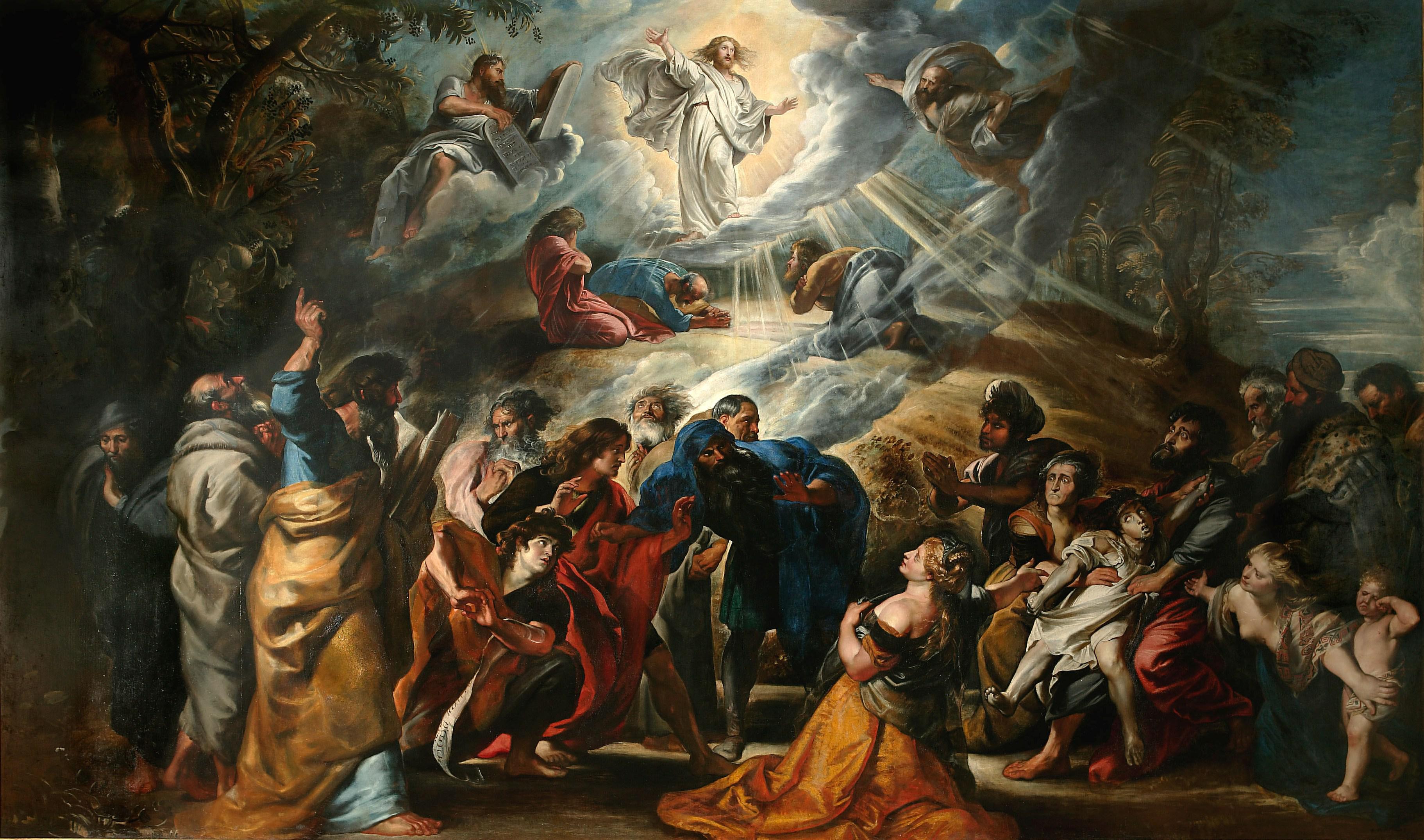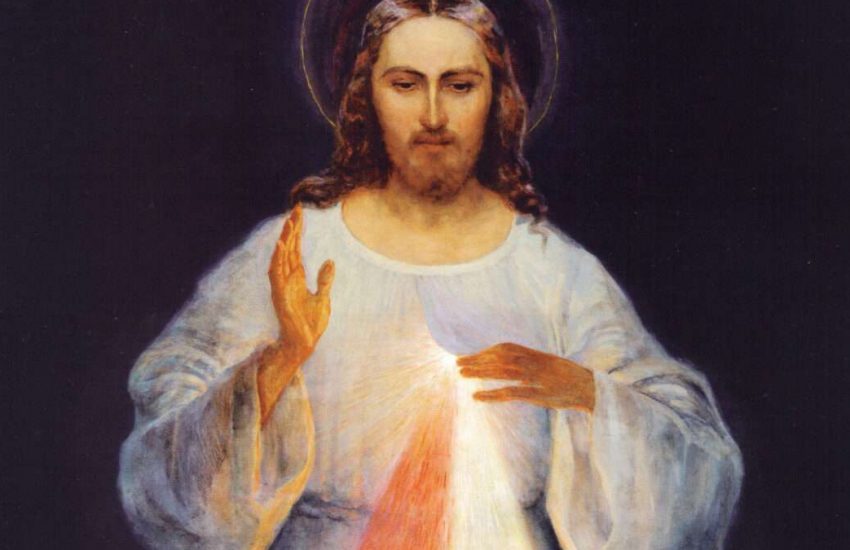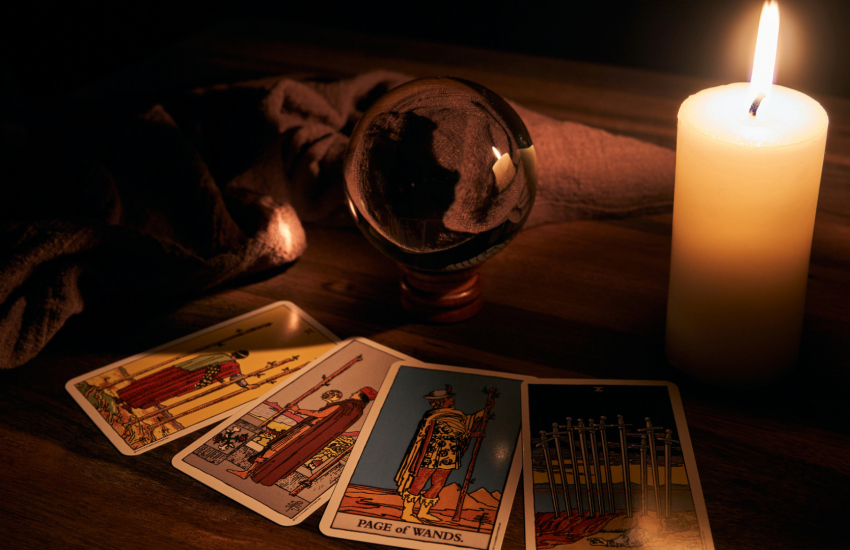A Second Look: Terrifying Goodness
2nd Sunday of Lent (B)
click here for readings
Some students and I were having an interesting conversation last week about the concept of “fear of the Lord.” Our talk centered around the question of whether is was sufficient to do good because you fear God, or if true good had to be done out of love for God. Everyone agreed that love is a more pure motive than fear. But for some, fear may be what works. As our faith matures, we should find ourselves motivated more and more by love of God, and less and less by fear of God’s punishment.
But loving God doesn’t preclude a certain kind of fear of Him. In fact we are supposed to have a healthy fear of God. The scriptures tell us multiple times, “fear of the Lord is the beginning of wisdom” (Ps 111:10; Prv 9:10).
Proper fear of the Lord is a good thing. We see this on display in this Sunday’s gospel reading (Mk 9:2-10). Jesus takes Peter, James and John away to a high mountain. When they reach the top Jesus’ clothing becomes dazzling white, and suddenly Moses and Elijah appear and Jesus’ full divine glory is revealed. It’s so intense the disciples can barely stand to look upon it.
What is Peter’s response to this display of Jesus’ divinity? The gospel tells us two things. First, Peter says, “It is good that we are here!” But then the gospel also says, “He hardly knew what to say, they were so terrified.”
The word terrify has the same Latin root as the word terrific. These two English words together tell us something of what Peter, James and John experienced. They were terrified because they were seeing something terrific. They looked upon something great and majestic, so they could truly say, “It is good to be here,” but it was so great and majestic that it inspired in them a certain awe and fear. This is the sort of fear that we are supposed to have toward God — not mere fear of His punishment, but a supreme awe at His greatness. It is a fear born of reverential respect, and even wonder.
We don’t normally think of good things as being fear-inducing. We fear things because we think they are bad, or might be bad. We fear things we think might harm us. But goodness can be scary — especially when it is so pure that you cannot help but realize just how impure you are by comparison. This sort of all-pure goodness does harm us, in a way. It harms our ego. It confronts us with the reality that we are not as good as we think we are. It destroys our illusions that we are our own gods.
C. S. Lewis writes about the sort of fear goodness can inspire in his book, Perelandra. The narrator in the story finds himself face to face with an angel, and describes his feelings this way:
…all those doubts which I had felt before I entered the cottage as to whether these creatures were friend or foe… had for the moment vanished. My fear was now of another kind. I felt sure that the creature was what we call “good,” but I wasn’t sure whether I liked “goodness” so much as I had supposed. This is a very terrible experience.
Later in the same book Lewis describes the manifestation of an angel this way: “Pure, spiritual, intellectual love shot from their faces like barbed lightning. It was so unlike the love we experience that its expression could easily be mistaken for ferocity.” There is a reason why, in the scriptures, whenever angels appear to humans the first thing they say is, “Be not afraid.” It’s because angels are terrifying. And angels are merely God’s messengers! How much more terrifying would be be to be in the presence of God Himself?
We can’t let ourselves become too comfortable with God. Jesus is our friend, but He’s not our “buddy.” Jesus is our Lord, our Master, our Creator, and our Savior. He’s also our Brother, which is one of the greatest miracles of our faith. You and I have no right to stand before God. Even Moses, who conversed with God on Mount Sinai, had to hide his face from God, because if he looked upon God’s full beauty he would die (Ex 33:18-23).
A Muslim man once told a Catholic that he didn’t think we Catholics truly believed in the Real Presence of Christ in the Eucharist. When asked to explain why, he pointed to the way most Catholics walk up to receive Communion so causally. “If I believed that piece of bread was God, I would fall to my face on the ground and not be able to get up,” he said. He has a point. We are finite, imperfect, sinful creatures who have no right to stand before the infinite, perfect, all good Creator.
But there is part of the equation this young Muslim man did not understand. We have no right to stand before God. So God comes and stands before us. God knows that we mere creatures could not approach his ferocious all-holy presence. So He comes to us in a form we can approach. The Jesus whom Peter, James and John saw transfigured on the mountain is the same Jesus they walked behind just a few moments earlier. The Jesus who terrified them in His glory is the same Jesus who called them from their fishing nets, with whom they ate and drank and conversed. And it is the same Jesus who comes to us at each and every Mass under the veil of bread and wine.
This is the great scandal of the Christian faith. The God whose beauty we could not bear to look upon has become our brother. The God whose goodness would consume us has become food we can consume. It’s astonishing. It makes no sense. It can only be explained by one thing — God’s boundless desire for us.
At the moment Jesus died on the cross, the veil in the Temple sanctuary was torn in two. This was the veil that separated the Holy of Holies from the rest of the Temple. This room was the inner sanctuary, the tabernacle where the presence of God dwelt, and only the high priest could enter. But that veil has been torn away. Not only can we now enter into God’s presence, but God’s presence enters into us. We become living temples.
When we begin to comprehend the depths of God’s love for us, we should find it a little terrifying. Because it is truly terrific. If we are open to receiving God’s love, then even though it may terrify us, we can say, like Peter, “It is good, Lord, to be here.”



